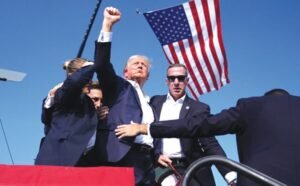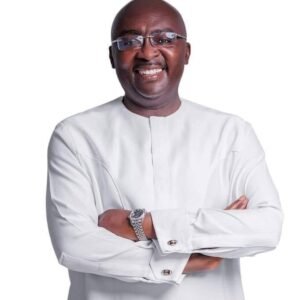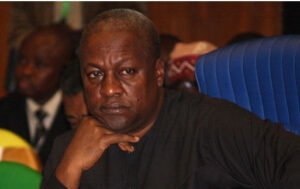
The writer
The role of the press in democratic dispensations is enormous, and cannot be undermined. The perception of certain ideological focus of individual press houses in Ghana, however, has resulted in a general mundane attitude of the Ghanaian consuming populace of the information coming from these media organisations.
This has deepened further our polarised political landscape, with notable journalists conspicuously championing agendas of political parties or groups with similar ideological stance.
One can argue that the multifarious media climate contributes to this situation. Freedom of communication at any level is a welcoming development, and deepens our democratic credentials even more.
What is not acceptable is working outside of the agreed ethical principles that are established to promote objectivity in the dissemination of information.
Assessment of ethical principles
A regular assessment of the ethical atmosphere of media houses’ operational output must, therefore, become a binding obligation on all media regulatory bodies in the country if the press is still recognised as the Fourth Estate of the realm.
As a result, objectivity and standardisation cannot be eliminated in media reportage due to the increasing free speech allowances afforded the press, according to our legislature.
The law, as a matter of democratic principle, guarantees the right to accessing and disseminating information for and on behalf of the citizens, whilst the ruled and the ruler continue to pursue common agenda towards nation building.
However, this right does not guarantee irresponsible journalism. Some individuals who, out of their bellicose interests, embark on wrongful reportages capable of breeding chaos must be ready to owe up to their irresponsibility.
Supposedly, information shapes, to a large extent, our views and perspectives of the world. In that case, a free press must use its role to proffer understanding based on agreed ethics considered objective for safeguarding Ghana’s democracy.
Free speech, rule of law
I believe that free speech is not an automatic waiver to be above the law. Everyone is equal before the law.
The authorities of the concept of rule of law got it right when they posited that ‘Rule of Law’ simply means that all persons, irrespective of race, colour, tribe, political and religious affiliations, are equal before the law. This points to non-discrimination when it comes to interpretation and application of the law to all Ghanaians.
Politicians, religious leaders and musicians are not above the law, neither are media professionals. All persons are accountable to the laws of the land, just as every ordinary individual who pride themselves as a Ghanaian.
For instance, not too long ago, the arrest of the MCE of Sekondi-Takoradi became a much talked about incident that resulted in various interpretation from persons who work with the media. The Ghana Police Service administration was lauded creditably for its unflinching stance against anyone who infringed on the laws of the land.
Some media personnel in drumming aloud the exploits of the Police took to their Meta accounts to express their satisfaction with which the police had undertaken this assignment. They insisted among other things that, the MCE was not above the law. Some even went as far as printing half naked pictures of the MCE on their front pages, just to embarrass him.
Again, several months ago, some police officers were apprehended by the Police Service to deafening applause of journalists in particular. The arrests of some equally famous citizens including but not limited to Shatta Wale, Medikal, Member of Parliament for Nhyiaeso, Dr. Stephen Amoah [Sticker] Amoah, Prophet Owusu Bempah and many drivers.
They fell afoul of the law and were greeted with glee and cheers all the way to the roof top by journalists. For a moment, Ghana was working again. Rule of law was back because the cuffs of the Ghana Police Service knew no boundaries, as everyone could be gripped.
That notwithstanding, rule of law was back for everyone except journalists who are the prime hear Sayers of the enforcement of the rule of law! They cannot be arrested irrespective of their conduct and behaviour on and off the airwaves. Otherwise, why the hue and cry over Bobie Ansah’s arrest?
What are the facts?
According to the police, Bobie was invited to assist in the case of false publication and other offensive conducts against the First and Second ladies of the land. The police even wrote to the media house he works for, but both employee and employer felt they could hide behind the cloak of freedom of the press to ignore the police.
Bobie Ansah was arrested to assist the police in their investigations after he ignored several invitations. An act backed by law. It has nothing to do with culture of silence.
It has nothing to do with journalism yet in the name of politics, people who are supposed to know better had found their voices castigating the police even to the point of crucifying the corridors of the Presidency.
Suddenly, a simple application of the law by the police to the latter just as they have done to other Ghanaians has been skewed to score political points. Some group of persons feel entitled to being more Ghanaian and concerned about press freedom at the expense of the peace of the nation.
Argument by some seasoned journalists
In the view of Abdul Malik Kwaku Baako, Editor in Chief of the New Crusading Guide, if it is something he (Bobie Ansah) communicated, spoke or wrote about which hurt the integrity and reputation of any individual, let the latter cure the “mischief” by way of civil litigation! No need for criminal investigation and prosecution!
If his communication and expression had/has the potential to cause fear and panic, I suggest that he and the said communication/expression can and should be ignored.
National Security should have the capability to contain any threat – perceived, real, or both!
A good number of journalists, including Abdul Malik Kwaku Baako himself, are expressing their opinions on Sections 207 and 208 of the Criminal Offences Act. To them, those sections need to be repealed, same way the Criminal and Seditious Libel Laws were repealed in July 2001, after a protracted battle with people who ‘shouted’ that that course of action would be attained over their dead bodies!
But the question is, would same opinions have been expressed by these same journalists if it were a politician who found himself in the grips of the law?
The law regarding freedom of expression, definitely, must have different lenses because what is good for the goose is not good for the gander.







